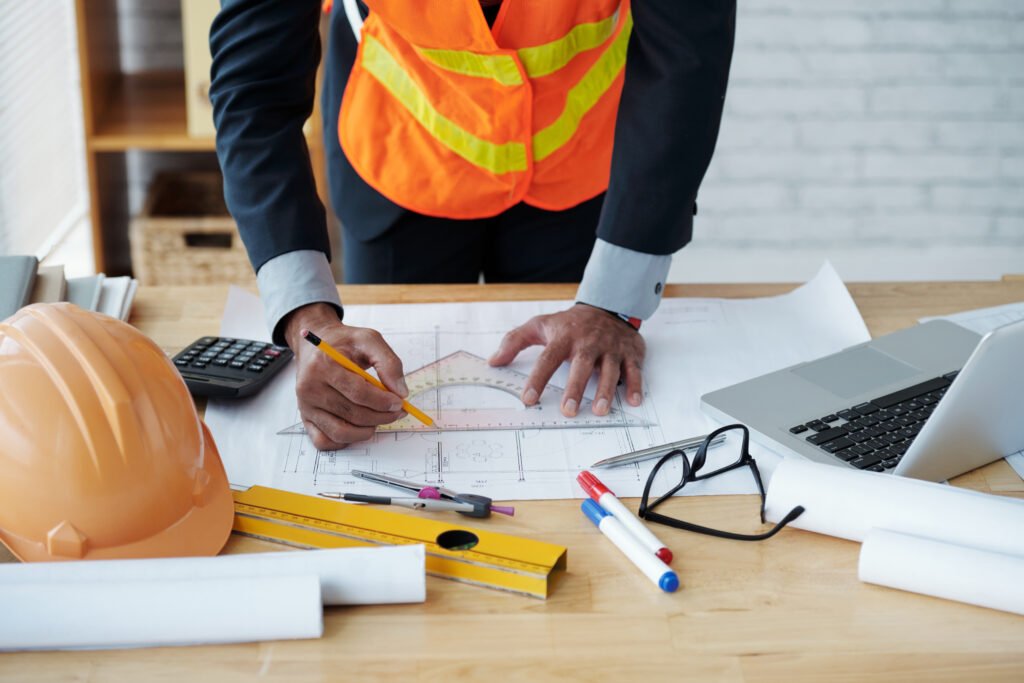
Sri Lanka is witnessing a growing demand for housing, fueled by rapid urbanization, modern lifestyle preferences, and the desire for personalized living spaces. As more people embark on the journey of building their own homes, it becomes essential to understand the key factors to consider before starting house construction. Without proper planning and awareness, even a well-funded project can face delays, legal complications, or costly errors. From securing permits to choosing the right location and materials, every step requires informed decisions. This blog is designed to guide homeowners and builders through the most critical considerations to help ensure a smooth, efficient, and successful home construction experience in Sri Lanka.
1. Understanding Legal & Regulatory Requirements
Before embarking on any residential endeavor in Sri Lanka, a comprehensive knowledge and adherence to the nation's authoritative and regulatory framework is imperative. Securing the appropriate permissions and endorsements from local administrations like the Urban Development Authority (UDA), Municipal Council, or Pradeshiya Sabha confirms that your project is legally acknowledged and avoids potential penalties or delays. Conforming to zoning regulations and land utilization arrangements is equally important, as these rules establish what style of structure can be fashioned in a specific region and under what conditions. Contractors must also comply with national construction codes to maintain safety, structural integrity, and environmental benchmarks. Conducting a lawful title inspection to validate ownership, validating land boundaries with a authorized surveyor, and obtaining environmental clearances if necessary are fundamental initial steps. Disregarding these authorized factors can lead to costly disputes or construction halts, so it is prudent to prioritize them during your planning phase.
2. Selecting the Right Location
Selecting the perfect place is one of the most important things when it comes to the building of new house in Sri Lanka. Land elevation, soil quality and susceptibility to natural disasters such as flooding or landslides can have a large impact on both the ability to build upon a site and its safety in the long term. Poorly drained or gravelly sites may call for expensive site-preparation and engineering solutions. Proximity to necessities like schools, hospitals, mass transit systems and marketplaces is another advantage that comes with convenience of living every day. So, a place that has good access to basic utilities like water, electricity and pathways or roads is one that will give you fewer headaches if you develop there one day. It’s also worth considering appreciation for future value, too: A plot of land somewhere that’s still growing in terms of infrastructure, has businesses popping up nearby, or is expanding as a town could make for a good investment. Consideration of these factors upfront will help you secure a new home that is not only safe and accessible, but also a good financial investment in the long run.
3. Budget Planning & Financial Preparation
It is important to plan your budget properly so that there are no financial surprises during your home construction work Sri Lanka. Major cost contributors are the cost of land, construction materials (which can easily rise 20%-30%), building quality, design and the cost of labor. Also, it is wise to add a contingency buffer, which is generally 10–20% of your overall budget, to plan for unexpected expenses related to material costs, or weather-related schedule adjustments. For so many, getting a little financial assistance is also a necessity. Sri Lankan banks & financial institutions Many Sri Lankan banks and financial institutions provide housing loans Best part being loans can be customized based on one’s income, repayment capacity, as well as project value. Before you enter, it’s important to compare interest rates, repayment terms and hidden costs. Most importantly, a realistic, well thought out budget leads to better cost control, avoid frustrating delays and helps ensure the project is not left unfinished. Good financial preparation doesn’t just save money; it also cuts down on stress throughout your home-building experience.
4. Choosing the Right Contractor & Architect
Picking a contractor and an architect is an essential step that can either put in a good position or be a disaster for your home construction in Sri Lanka. The key is to hire licensed, experienced, and well-reputed professionals who are familiar with local building codes, climate nuances and design styles. A little due diligence from credentials to past projects to client reviews to industry affiliations can offer some peace of mind when you’re placing your faith in experienced professionals. Always ensure you get a proper written contract clearly covering the work to be done, when it will be done, invasive payments, and liability clauses. Being open and honest early provides transparency and reduces risk of misunderstandings, delays, or extra costs. Do not forget to ask for written estimates and project details to keep things clear on the financial side of things. A reputable builder will breathe life into your vision through superior workmanship and support you every step of the way in your construction experience, making the journey easier and less stressful.
5. Design, Materials, and Sustainability
Creating a living space using a design that is appropriate for Sri Lanka’s tropical weather is crucial in the long term for comfort, sustainability and affordability. A smart building should be adapted to accommodate high humidity, heavy rainfall and heat by including elements such as a sloped roof, wide overhanging eaves and a creditable open plan in order to encourage airflow. The selection of materials is important, too—when building outdoor constructions, select durable, weather-resistant materials which are close to home such as clay bricks, cement blocks and treated timber in order to save money and decrease concern for the environment. While using recycled materials or low-VOC paints are yet more examples of eco-friendly options to live in a green way. Following green building techniques such as solar panels, rainwater harvesting systems, and LED light fixtures to make your home energy efficient can save you money on utility bills and minimize your home’s impact on the environment. Good design should also maximize natural light and cross-ventilation, as well as providing an opportunity for future expansion. Eco-friendly Architecture: By linking intelligent architecture with sustainability, you obtain a healthier, more cost-effective and future-proof home designed to be lived in in Sri Lanka.
Conclusion
Building a home in Sri Lanka is an exciting milestone, but it requires careful attention to several critical elements. As discussed, the top key factors to consider before starting house construction include complying with legal and regulatory requirements, selecting the right location, setting a realistic budget, hiring skilled professionals, and focusing on sustainable, climate-appropriate design. Each of these factors plays a vital role in ensuring your project stays on track, meets your expectations, and delivers lasting value. Smart planning not only helps you avoid costly mistakes but also leads to a more efficient construction process and long-term satisfaction. Before breaking ground, it’s strongly recommended to consult with experienced architects, contractors, and local authorities to make well-informed decisions that align with your goals and local conditions.
